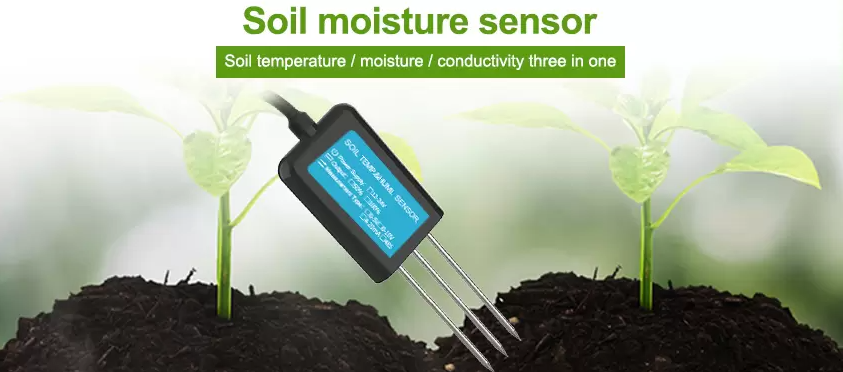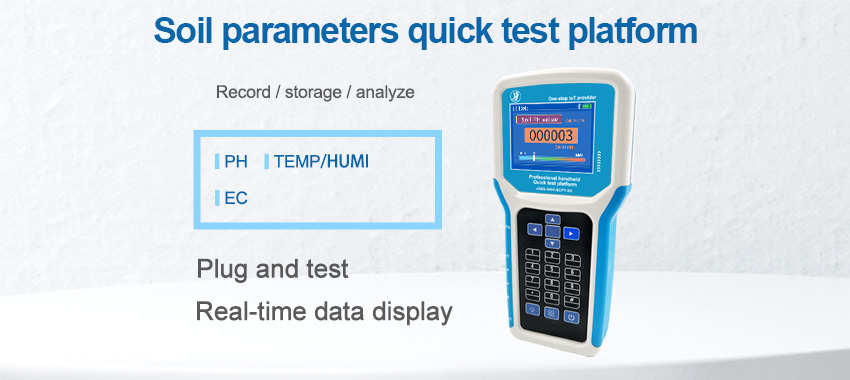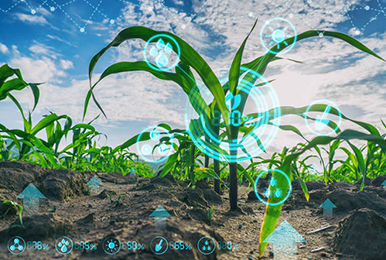In order to simplify the process of monitoring soil moisture, support for wifi soil moisture sensors is popular in agriculture. Keeping proper moisture in the soil is essential to plant health. This article explores the advantages of using WiFi soil moisture sensors, their functionality, and their role in promoting plant health.

The Significance of WiFi Soil Moisture Sensors:
WiFi soil moisture sensors offer a convenient solution for monitoring soil moisture levels in real-time. These devices enable users to accurately assess the moisture content of the soil remotely, allowing for timely irrigation and eliminating the guesswork involved in plant care.
Functionality of WiFi Soil Moisture Sensors:
a) Moisture Sensing Technology:
WiFi soil moisture sensors utilize advanced moisture sensing technology to measure the water content in the soil. Probes or sensors are inserted into the ground at various depths to collect data on the moisture levels within the root zone of the plants.

b) Wireless Connectivity:
These sensors connect to existing WiFi networks, allowing the data to be transmitted wirelessly to smartphones, tablets, or computers. Users can access the information remotely, eliminating the need for physically checking each plant individually.
c) Customizable Alerts and Notifications:
WiFi soil moisture sensor often come with customizable settings that allow users to set specific moisture thresholds. When the moisture levels fall below or exceed the desired range, the sensor sends alerts or notifications, prompting the user to take appropriate action such as watering or adjusting irrigation schedules.
Benefits of WiFi Soil Moisture Sensors:
a) Water Conservation:
By providing accurate and real-time moisture readings, WiFi soil moisture sensors help prevent over-watering or under-watering. This leads to efficient water usage and reduces water waste, contributing to water conservation efforts.

b) Plant Health Optimization:
Maintaining optimal moisture levels in the soil promotes vigorous plant growth and minimizes stress-related issues. WiFi soil moisture sensors enable users to provide plants with the right amount of water at the right time, ensuring their overall health and vitality.
c) Time and Labor Savings:
Traditional manual soil moisture monitoring requires regular physical inspections of each plant. WiFi soil moisture sensors eliminate this time-consuming task, allowing users to efficiently manage multiple plants or large gardening areas with minimal effort.
Applications of WiFi Soil Moisture Sensors:
a) Home Gardens and Landscaping:
WiFi soil moisture sensors are ideal for home gardeners and landscape enthusiasts who want to maintain healthy plants without constant monitoring. These sensors help ensure that plants receive adequate water, resulting in flourishing gardens and vibrant landscapes.
b) Agriculture and Farming:
WiFi soil moisture sensor are valuable tools for farmers and agricultural professionals who need to monitor soil conditions across larger crop fields. These sensors assist in optimizing irrigation schedules and preventing water stress, ultimately improving crop yield and quality.
c) Greenhouse and Nursery Management:
WiFi soil moisture sensor are beneficial in greenhouse and nursery settings, where precise control over moisture levels is essential. These sensors provide real-time data, enabling growers to make informed decisions regarding irrigation management and create optimal growing conditions for plants.
Conclusion:
WiFi soil moisture sensor have revolutionized the way we monitor and manage soil moisture levels for plant health. By offering wireless connectivity, real-time data, and customizable alerts, these sensors empower users to optimize irrigation practices, conserve water, and promote plant vitality. Whether in home gardens, agriculture, or commercial nurseries, WiFi soil moisture sensors are valuable tools that simplify plant care and contribute to sustainable and thriving plant ecosystems. Embracing this technology benefits both individuals and the environment, making it an essential tool for all plant enthusiasts and professionals alike.
